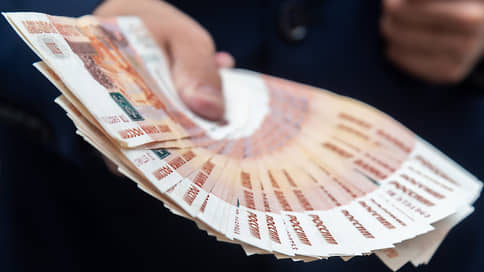Five – now, or ten – later – Kommersant
[ad_1]

The bill on a one-time fee from large businesses, which could bring the budget about 300 billion rubles, was sent on Friday to the departments and the RSPP for approval. The head of the Ministry of Finance, Anton Siluanov, said that the project would be submitted to the government “in the near future”. Since it is impossible to worsen the position of taxpayers during the current year, formally the payment will be introduced only from the next one – in the amount of 10% of the excess profits of companies. But since the budget needs the money now, businesses will also be offered a “discounted” option, which is more desirable for the Ministry of Finance – early payment of the fee this year in the form of a security deposit, which will be credited in 2024. In this case, the fee rate is halved, to 5%.
The Ministry of Finance has completed the preparation of a bill on a one-time fee to the budget, the so-called windfall tax – as Anton Siluanov, the head of the department, said yesterday, the document is planned to be submitted to the government in the near future, while it is sent to government agencies for approval, and also sent to the RSPP. We are talking about a one-time payment to the budget of a collection from the past superprofits of some companies – the total potential volume of such a payment is estimated by the Ministry of Finance at 300 billion rubles.
Recall that the idea of the collection has been discussed since the beginning of February (see Kommersant of February 9). Initially, it was about a voluntary contribution, but this concept was revised in favor of a mandatory payment (including due to the position of the business that stated that there could be no voluntariness in such a matter, and that the implementation of such an option would be difficult due to corporate procedures).
The structure of the fee, confirmed yesterday by Anton Siluanov, is as follows: the base rate will be 10% of the difference between the company’s profits in 2021-2022 and 2018-2019. Since the legislation prohibits the introduction of new taxes during the year, the fee will be paid in 2024. However, it is preferable for the state to make an early contribution already this year (October-November was mentioned) – therefore, the Ministry of Finance proposed to reduce the rate for such an “advance payment” to 5%. “So those who want to save money can pay in this,” said Anton Siluanov. According to him, the advance payment will be issued as “a security deposit, which will be credited as a tax and tax deduction next year.”
Earlier it was reported that the obligation to pay the fee will arise for companies with excess profits of more than 1 billion rubles. Yesterday, the minister noted that “the payment will affect only a tenth of the taxpayers.”
The collection, in particular, will not affect the oil industry (already loaded with taxes amid falling commodity prices) and small businesses. Also, as previously reported in the Ministry of Finance, the tax base for projects that are implemented under agreements on the protection and promotion of capital investments will also have immunity when calculating windfall tax (see Kommersant of March 17).
RSPP President Alexander Shokhin told Kommersant that, on the whole, the bill corresponds to preliminary discussions, but there are “several topics on which the wording is being clarified, including the technology for early tax payment, the procedure for calculating the taxable base, the situation with special investment contracts and a number of others.”
Anton Siluanov made it clear yesterday that there would be no adjustments to the one-time payment for individual companies. Earlier, Phosagro asked to apply a reduction factor when calculating the fee, since it duplicates the mechanism of export duties, introduced since 2023 just as a tool for withdrawing excess profits from the growth in world prices for fertilizers in 2021-2022. Deputy Finance Minister Alexei Sazanov said that such decisions cannot be made at the level of his department – exceptions to the collection mechanism can be made by the president or the government. The White House only reported that “the issue is being worked out.”
A significant part of the payment will fall on the banks – and they have already spoken about their plans in this regard. Sberbank Chairman German Gref said last week that the bank’s payment would amount to around RUB10bn, with plans to take advantage of the early payment option by reducing the amount of the payment. Deputy Chairman of the VTB Board Dmitry Pyanov said on April 27 that the loss in 2022 “completely eliminates at least some likelihood of VTB paying this fiscal fee.” According to the head of the Central Bank, Elvira Nabiullina, in general, for banks subject to such a contribution, its payment will not have a “great impact” on financial performance.
[ad_2]
Source link






